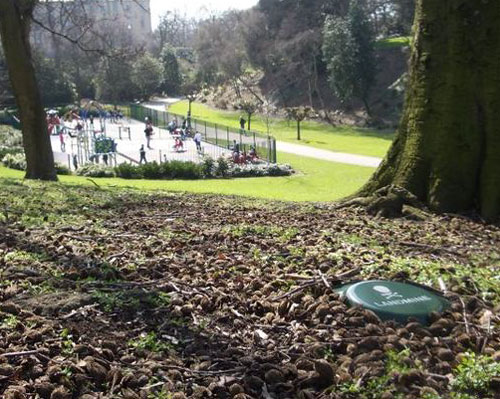Call for participation in the 2nd International Faslane Academic Blockade and Conference
Wednesday 27th-Thursday 28th June 2007
Trident Nuclear Weapons Base, Faslane, Near Glasgow, Scotland
Â
The 2nd Faslane International Academic Blockade & Conference (FAB Conference) will provide a forum for presenting and discussing papers focused on the impacts of, and alternatives to, the nuclear state. In particular it will focus on the academic arguments against Blairâ??s proposed â??son of Tridentâ?? which it is estimated will cost the UK £76 billion by 2030, equivalent to the cost of bringing our CO2 emissions down by 60% over the same period. The conference is simultaneously a blockade of the Trident nuclear submarine base at Faslane, since it will take place directly at the North Gate of the base, on the road. All who work and study in universities,  including students, and all who are trying to think critically about the nature of the world, are invited to join us.
Â
You can participate in a range of ways. You may present a paper at the conference. We hope that papers will take a variety of forms and reflect a variety of perspectives and disciplines. You are also very welcome to come along to listen to papers and participate in discussion groups. If you choose to do so, you may join those who are willing to continue the conference on the road in order to close down the base, thus risking arrest. We also need participants who do not risk arrest and who can, for example, continue our educational work by handing out papers to workers trying to enter the base on the morning of the 28th. Finally, our action overlaps with a studentsâ?? week-long anti-nuclear summer camp, taking place close to Faslane from the 28th. The students will join us on the 28th and would welcome you to stay on and offer workshops or talks at their camp if you wish.
Â
REGISTER NOW!
Register for the conference by emailing D.Webb@leedsmet.ac.uk with the following info:
1)Â Â Â Â Â Â Â Â your full name, university affiliation (if any), contact details
2)Â Â Â Â Â Â Â Â whether or not you intend to present a paper
3)Â Â Â Â Â Â Â Â whether or not you intend to blockade the gate and thus risk arrest
4)Â Â Â Â Â Â Â Â whether or not you are likely to require accommodation
5)Â Â Â Â Â Â Â Â which days you intend to participate (27th, 28th, any days of the student camp?)
If you intend to present a paper, please also supply an abstract to D.Webb@leedsmet.ac.uk, of 50-100 words, by 16th May 2007. You are welcome to send full papers before the event which we can upload onto our webpage (see http://www.faslane365.org/academics_and_scholars). Papers should be no longer than 4000 words.
If you have not already done so, please sign up to our email list to ensure you receive further information: send a blank email to faslane.academic.block-subscribe@lists.riseup.net.
Â
The 2nd FAB conference is part of Faslane 365, a one-year continuous peaceful blockade of the Trident base at Faslane from 1st October 2006 to 30th September 2007. See http://www.faslane365.org. The Faslane 365 actions are entirely non-violent, respectful of people, and are part of the broader peace and global justice movement.
Â
We look forward to seeing you on the 27th and 28th of June! The FAB Organisers: Stellan Vinthagen, Justin Kenrick, Jill Gibbon, Maud Bracke, Becka Kay, Catherine Eschle, Mark Blaxter and David Webb

